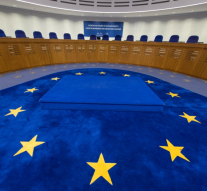
EU EIDHR as a support for Human Rights worldwide
Economy 15 February 2020The EU sees itself as a global player in most different aspects of political actions. To be able to provide these characteristics towards its title, the EU supports, among many other thing – human rights respect worldwide. As an entity with the supportive role for human rights itself, the EU has two streams on which the human rights policy is based on: one is to promote and protect human rights within the territory of its Member States, and the second one to fund the human rights promotion within the global scale, in areas of decreased case for these fundamental rights. How does the EU achieve its goal with human rights promotion? What’s in stake with the EIDHR?
The EU European Instrument for Democracy and Human Rights (EIDHR) is an instrument which highlights the promotion of human rights globally, beyond the EU Member States. This instrument covers the following areas: Social Affairs, Public Management, Humanitarian, Justice – Security, Human Rights, Co-op & Development, Democracy promotion etc. This instrument was launched back in 2006 and has several key areas and objectives. The first one is to enhance respect for human rights and fundamental freedoms in countries and regions where they are most at risk. This refers to areas of endangered situation concerning human rights and democratic rule. The second objective of this instrument is to strengthen the role of civil society in promoting human rights and democratic reform, as well as to support the peaceful conciliation of group interests and consolidate political participation and representation. This objective is clearly connected with the first one. Besides, the EIDHR strives to support actions in areas covered by EU Guidelines such as the dialogue on Human rights, human rights defenders, the death penalty, torture, children and armed conflicts and violence against women. The very last objective of the instrument relates to supporting and strengthening the international and regional framework for the protection of human rights, justice, the rule of law and the promotion of democracy, and to build confidence in enhancing the reliability and transparency of democratic electoral processes, in particular through monitoring electoral processes.
It is open to a wide range of actors and potential beneficiaries such as the CSOs, governmental organizations, national, regional and international parliamentary bodies, and even the natural persons where their help is necessary for achieving the aims of this instrument. Based on the information provided by the European Commission, this fund was “heavy” for the period 2007-2013 – of €1.104 billion, with its assistance which may take the following forms: projects and programmes, grants to finance projects submitted by civil society and/or international/intergovernmental organizations small grants to human rights defenders, grants to support operating costs of the Office of the UN High Commissioner for Human Rights and the European Inter-University Centre for Human Rights and Democratisation (EIUC) human, and material resources for EU election observation missions public contracts.
The global objective of EIDHR is to promote and support democracy and human rights worldwide allowing for assistance that will contribute to the development and consolidation of democracy and the rule of law, and respect for all human rights and fundamental freedoms. The programme is implemented within the framework of the Community’s policy on development cooperation, and economic, financial and technical cooperation with third countries, and consistent with the EU’s foreign policy as a whole. For the period 2014-2020 the EIDHR has a budget of €1.332 billion for all eligible countries, with distinguished annual allocations for each non-EU country.
Even though the different budgets for the two multi annual frameworks are quite similar (less than 200 EUR million) the EU has tremendously increased its activities in promoting democratic rule and human rights globally. This became the consequence due to the two reasons. Firstly, its natural willingness resulted by the capacity to involve and promote itself as a global (f)actor, and secondly, the endangered areas with autocratization have risen given that the democracy failure occurs in countries which are only partially stable. It is however unclear how this project will be financed within the next multiannual framework. One recommendation could go in a way to further foster cross border cooperation in these projects, which should especially be fruitful if implemented within the countries that lay within the nearest neighbourhood of the EU.



